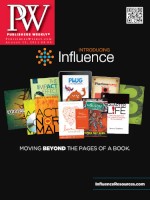Kennedy shares his radically successful program—“Operation Ceasefire” or “the Boston Miracle”—for bringing communities, criminals, and policeman together to curb street violence in Don't Shoot.
Your program has been adopted by more than 50 cities. How does it work?
Most serious street violence is driven by gangs, drug crews, and the like. Privately, even most of the guys doing it don’t really like it: they’re at horrible risk, they’re scared all the time, they’re not getting rich, and they feel trapped. They think the cops hate them, and they think their own community doesn’t care. Operation Ceasefire identifies the groups, pulls gang members into meetings, and has a partnership of law enforcement, social service providers, and community figures say, “We all want you to succeed, and live, and stay out of prison. The violence is completely intolerable, and is mostly hurting you and your own community. This is not a negotiation, and everybody in law enforcement is going to go after the next gang that kills someone.” It undercuts the street narrative that nobody cares, puts cops on the side of caring about even gang members, and creates a real legal deterrent. It’s pretty simple, really
You note that while crime rates overall are going down, homicide rates for black males continue to rise, especially in smaller cities. Why?
“Why” is about the whole of American history: it’s taken us a couple of hundred years to get us where we are. Crack sealed the deal; crack didn’t have to happen, it wasn’t inevitable, but when it hit it devastated these communities, and the fallout is still reverberating. Our national response to crime is now part of the problem, too: when we arrest all the men in the neighborhood in the name of protecting it, and they come out of prison and can never get a good job again, we’ve effectively destroyed the neighborhood. A key part of what I’ve learned, and the story the book tells, is how the three key communities involved—law enforcement, the hot neighborhoods, and the street guys—all hate what’s going on. The Ceasefire strategy and the other things like them that have been developed are really just a way of getting everybody together and saying, we all have to stop what we’ve been doing. And it works.
How has your work affected (or changed) your view of humanity?
I have been totally amazed and humbled by the core goodness I’ve found in the most unlikely places. There’s strength in the most devastated communities: cops that get written off as racist put their bodies on the line to save gangbangers; gang members and drug dealers turn themselves inside out not to have to hurt people; little old ladies in the neighborhoods tell big armed thugs to behave and they do. The most profound moment has been seeing these groups, who genuinely mistrust and hate each other, being willing to look at things differently and change what they think and what they do. It’s so completely unexpected, and deeply, deeply hopeful.



 Volume 258
Issue 33
08/15/2011
Volume 258
Issue 33
08/15/2011





